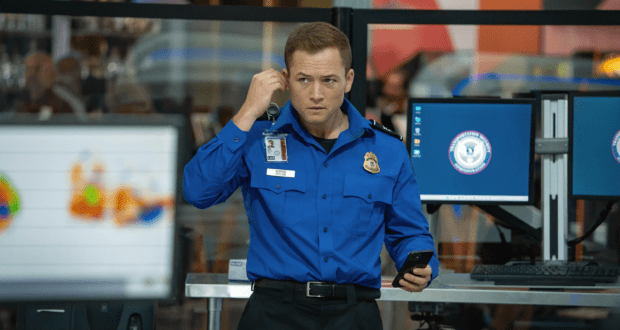Lonely Planet, directed by Susannah Grant and starring Laura Dern and Liam Hemsworth, seeks to blend the introspective musings of a novelist and the complexities of romantic entanglement set against the enchanting backdrop of Morocco. While the premise offers intriguing potential, the film stumbles in its attempt to balance emotional resonance with a scenic yet hollow love affair. Though it boasts moments of visual splendor and contemplative dialogue, Lonely Planet ultimately feels like a missed opportunity, marred by thin character development and a lack of emotional weight.
The setup:
The film introduces Katherine Loewe (Laura Dern), a celebrated novelist at a crossroads in her life, seeking solitude in Morocco to finish her latest book while grappling with the recent end of a 14-year relationship. Katherine’s internal struggles, both personal and creative, offer fertile ground for a narrative of self-discovery. However, these themes remain underexplored, never reaching the emotional depths that could have made her journey compelling.
Owen Brophy (Liam Hemsworth), the film’s other focal point, is introduced as a businessman accompanying his novelist girlfriend, Lily (Diana Silvers), to the same Moroccan resort. The film quickly establishes that Owen feels out of place in this environment, where intellectuals and writers dominate the social circles. His growing frustration with Lily’s world of literary ambition and the subsequent tension in their relationship set the stage for his eventual connection with Katherine.
Weak chemistry:
While the plot sounds ripe for rich character exploration and romantic tension, it falters in building believable chemistry between Katherine and Owen. Their connection feels forced and contrived rather than the organic result of two people finding solace in each other’s company. This lack of emotional grounding makes it difficult for the audience to invest in their growing bond, and as a result, the love story feels flat and unconvincing.
A beautiful backdrop:
One of the film’s few strengths is its use of location. The Moroccan setting is breathtaking, with sweeping landscapes and vibrant marketplaces that add a layer of visual allure to the film. The cinematography captures the beauty of the country, from its bustling streets to its quiet, sun-soaked vistas. However, the film leans too heavily on its picturesque backdrop, using it as a crutch to distract from its lack of narrative substance.
The sequences where Katherine and Owen explore the Moroccan countryside together offer a brief respite from the otherwise plodding pace of the film, but they never move beyond surface-level interactions. Rather than using the environment to deepen their relationship or highlight cultural themes, the film reduces Morocco to a mere backdrop, neglecting to engage with the rich history and complexities of the setting. This decision diminishes the film’s potential for authenticity and reduces the world Katherine and Owen inhabit to a postcard-perfect fantasy rather than a living, breathing place.
Lead performances:
Laura Dern, as Katherine, does what she can with the material, bringing a sense of world-weariness and emotional vulnerability to the role. Katherine’s struggles as a writer and a woman trying to find peace after a long-term relationship offer moments of introspection, but these moments are fleeting. The script never delves deep enough into Katherine’s psyche to make her a truly compelling character. Instead, we’re left with glimpses of her inner turmoil that are never fully fleshed out, leaving her character arc feeling incomplete.
Liam Hemsworth’s Owen is similarly underdeveloped. While Hemsworth brings a likable presence to the screen, his character lacks the depth needed to make his romance with Katherine believable. Owen’s dissatisfaction with his life and relationship with Lily is introduced early on, but the film never explores these issues in any meaningful way. His connection with Katherine feels more like a convenient plot device than a genuine emotional shift. Hemsworth’s performance, while competent, is unable to elevate the thin material he’s given.
Supporting cast:
Diana Silvers as Lily, Owen’s ambitious girlfriend, is positioned as the foil to Katherine, but her character is disappointingly one-dimensional. Lily’s drive to establish herself as a novelist comes across as selfish and unsympathetic, and the film does little to explore her perspective or motivations. This imbalance in characterization makes it difficult to empathize with her side of the relationship, further undermining the emotional stakes of the love triangle.
The supporting cast, including Adriano Giannini as Ugo, Katherine’s old flame, and Younès Boucif as their driver Rafih, provide brief moments of levity and intrigue, but they are relegated to the sidelines, never given enough screen time to develop fully. Their presence feels like an afterthought, and their interactions with the main characters, while occasionally amusing, add little to the overall narrative.
A failed message:
At its core, Lonely Planet aims to be a film about self-discovery, love, and the complexities of human connection. Katherine’s journey, both as a writer struggling with creative block and as a woman trying to rebuild her life, should have been the emotional anchor of the film. However, the screenplay never commits to exploring these themes in depth, opting instead for shallow dialogue and predictable plot beats.
Katherine’s relationship with Owen is meant to reignite her passion for writing and help her find closure after the end of her previous relationship, but their interactions lack the emotional intensity needed to make this transformation feel earned. The film’s reliance on cliched romantic tropes, such as the stolen kiss in the rain or the chance reunion in a crowded bar, further detracts from its thematic ambitions. Instead of offering a nuanced exploration of love and self-discovery, *Lonely Planet* settles for formulaic storytelling that fails to resonate on a deeper level.
Overall:
In the end, Lonely Planet is a film that feels more like a missed opportunity than a fully realized story. Despite its talented cast and stunning visuals, the film is hampered by weak character development, a lack of emotional depth, and a predictable plot. Laura Dern and Liam Hemsworth do their best with the material they’re given, but their performances are ultimately overshadowed by a script that never digs deep enough into its characters’ inner lives.
For a film set in such a vibrant and culturally rich location, Lonely Planet feels disappointingly hollow. Its attempt to blend romance, self-discovery, and literary themes never quite comes together, leaving the audience with little more than a visually appealing, but emotionally unfulfilling, experience.
-
Acting - 5/10
5/10
-
Cinematography/Visual Effects - 6/10
6/10
-
Plot/Screenplay - 4/10
4/10
-
Setting/Theme - 5/10
5/10
-
Watchability - 5/10
5/10
-
Rewatchability - 2/10
2/10












